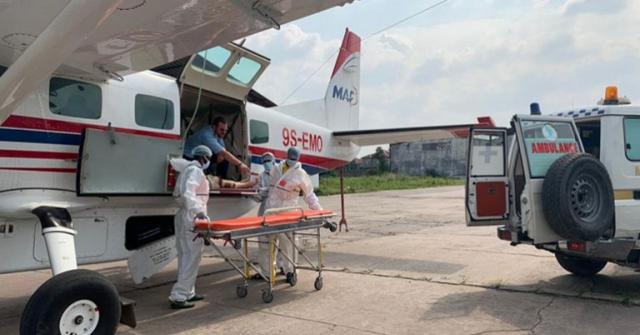
Why Local and Global Missions Need Each Other
At Mission Central we like to share observations from mission workers on what they’ve learned during their time serving others.
Mission agencies like TEAM exist because of our conviction that mission is incomplete if it ignores those beyond our immediate geographic reach. A critical aspect of the agency’s task within the church is to remind the larger community of far-flung needs that might otherwise be forgotten. We have beaten this drum loudly and persistently.
In our passion to keep the global unreached in the North American church’s vision, however, we have sometimes encouraged the belief that international mission is of a higher order than domestic mission. We have inadvertently created the belief that international missionaries are the hardcore, the totally committed, the “radical.” We have subtly contributed to the belief that domestic ministry is a cop-out and that those engaged in this kind of ministry are shirking the highest of callings and the deepest of sacrifices. In our zeal for the far-flung, we have occasionally fallen into the trap of condemning those called to pour out their lives in our neighborhoods.
This is as unfortunate as it is unbiblical. We are desperately in need of a more nuanced conversation around the topics of local and global mission. As one small attempt to bring balance to this conversation, we offer here four reasons why we insist on viewing local and global mission as fundamentally intertwined.
Global Mission is Born Out of Local Mission
Global mission is nothing more than local mission outside your home environment, and ministry at home is the best preparer for and indicator of success overseas.
It is easy to forget that Paul, the prototypical New Testament missionary, started out in local ministry. In fact, before his year-long ministry at Antioch under Barnabas’s supervision (Acts 11:25-26), Paul wasn’t really the man we think of. What activities made up this year of ministry? No doubt many of the things that make up local ministry as we know it today: relationship-building, outreach, evangelism, discipleship, teaching, leadership development, etc. These building blocks of ministry were as fundamental to Paul’s success as they are to ours. They are equally as critical to local ministry as to global work. And, like Paul, missionaries called to global engagement will need to learn these skills within their local context before ever moving to the other side of the world.
This is a case of being faithful in the simpler things before you are entrusted with the more complex. While we’re convinced that local mission is just as critical as global mission, the latter is often a more complex proposition. Moving a family thousands of miles away, investing years in language study and crossing major cultural barriers are all exceptionally risky endeavors. And there is no greater predictor of success in global mission than success on the local front. Without local mission, there is no global mission.
Local Mission Requires Global Vision
It is easy to focus on local ministry because local needs surround us on a daily basis and demand our attention. But since the very beginning, God has been in the business of pushing his people out of their current context and sending them into the wider world. Abraham, Moses, Isaiah, Jeremiah and Daniel are all notable examples. And these individual instances are microcosms of God’s larger emphasis on sending Israel to the nations.
Significantly, we should also add Jesus to the list of individuals sent as part of God’s mission. John 1, Philippians 2 and Hebrews 2 make clear the implications of Christ’s incarnational ministry — setting aside his former context to take on flesh, humbling himself, speaking our language and sharing our suffering.
God sent Israel as a whole and Abraham, Moses and many others in particular. He left his own throne to live with us. But to what end? To the end of blessing the nations, of bringing the good news of his kingdom to the lost and broken kingdoms of the world. We see this taught clearly from Genesis right through to Revelation (Genesis 12; Psalm 22:27-28; Isaiah 2:2; Revelation 5:9, 21), and emphasized by Christ’s own commission to his earliest followers (Matthew 28:18-20; Acts 1:8).
It will not do, then, to separate local ministry from global work, picking and choosing the emphasis that suits our purpose. To do so is to fundamentally change the mission of God and set off down a path that is foreign to God’s heart as revealed in Scripture.
Global Mission Multiplies Local Mission
We can measure effectiveness in many different ways, but most of us agree that bringing the good news of Jesus to those who don’t yet have it is a primary calling for the church. This being the case, the question for each congregation becomes, “To which unreached are we called?” How we answer this question will determine whether global missionary-sending feels more like subtraction or more like multiplication.
Here’s what I mean: If you feel called to exclusively reach the unreached of your neighborhood and city, then sending a member of your body to another city (let alone another country or continent) will always feel like a loss. If, however, you recognize God’s heart for the global lost, and set your vision accordingly, then engaging beyond your borders will be a fulfillment of your mission and a multiplication of your ministry.
It’s easy to focus on what we lose by turning our attention globally. If we send people or money to the other side of the world, we won’t have those resources at our disposal to address the needs of our community. If we pray for global needs, we draw our attention beyond our immediate needs and might overlook the more obvious opportunities next door.
These are valid concerns, and we’re right to raise them. But don’t overlook the way global engagement can multiply local mission too. Practicing generosity tends to foster a heart of generosity, which can spill over into all areas of life. Calling your people to give to God’s global mission will engage them in ways that can increase their openness to support local projects as well. Individuals who serve overseas will return with invaluable experiences that will make them more effective workers on the local front, too, and will serve as powerful local examples of those who obeyed God’s call to engage his world. Mobilizing fervent prayer for the nations can be an easy way to open hearts to local needs as well. Quite apart from draining precious resources, global engagement multiplies our ability to engage locally too.
Your Local Mission is God’s Global Mission
Two years ago, I met a family who expressed their desire to move to the Middle East as missionaries. The specific location on their hearts is one of the most difficult places in the world to reach; the odds of this family ever acquiring the skills to successfully live on mission in that context were nearly impossible. At the same time, they shared with me that the Lord had cultivated their heart for this people by embedding them among a community of expatriates in their home city. As we spoke, they told me story after story of individuals from this people group whom they knew at a deep level and with whom they would soon be able to share the gospel. The truth is that this family was having a greater global impact in their own city than they would ever have overseas.
It was once true that the only way to reach China, Pakistan or Japan (for example) was to physically move to these places, live among the people, learn their language and share the gospel in their context. Of course, there are many people groups that still require this kind of engagement, but the distinction between local and global mission is becoming murkier by the day. Today, it is most likely that your best opportunity to reach the unreached will come from getting involved in outreach within your own city or state. You may not have the opportunity to take the gospel across borders, but you certainly have the opportunity to reach the unreached in your backyard.
And let’s be clear: From a missional perspective, this blurring of local and global should be celebrated. Our God is never constrained by geography, and his singular mission requires both local and global engagement. The diversification of our neighborhoods and the increasing ease of global migration can all be harnessed to push our congregations deeper into the mission of God.
So, who is God calling you to reach? Where do they live? How will you reach them? Will you limit your focus to those that look like you, act like you, speak your language, and eat at your restaurants? Or will you look beyond your own cultural borders to the lost of the world? If you do, you might just be surprised to find that they actually live right next door.
This article originally appeared on the TEAM.org Christian Missions Blog.











